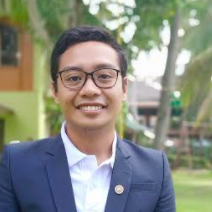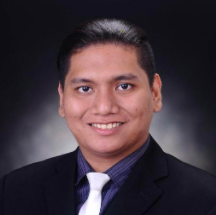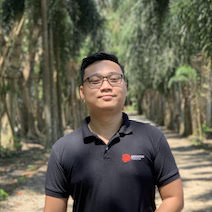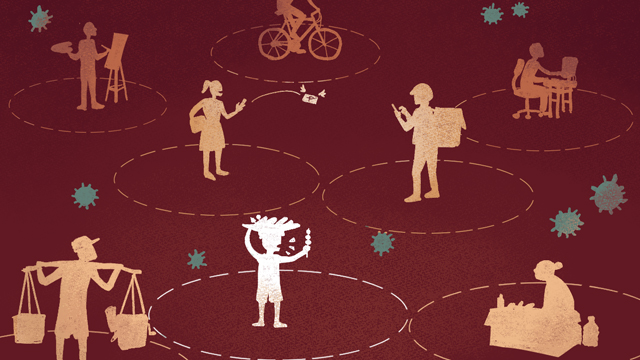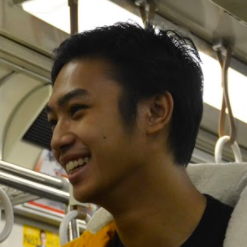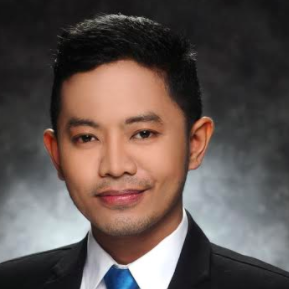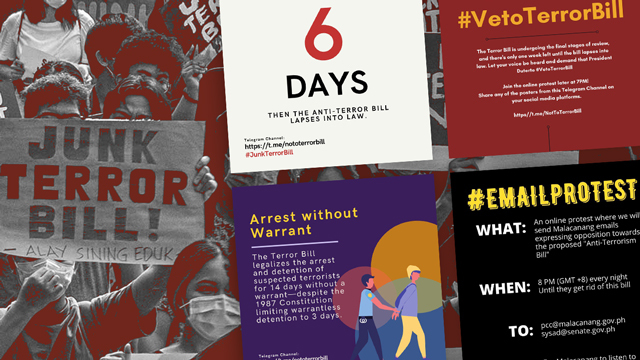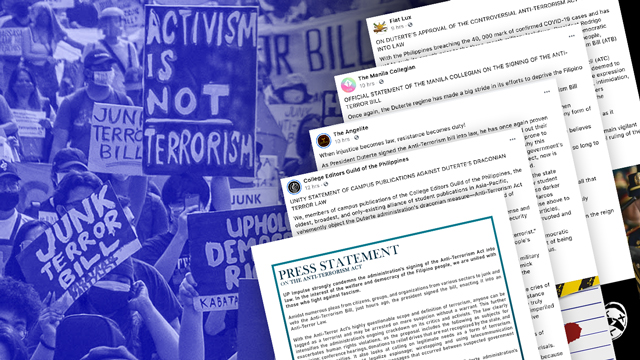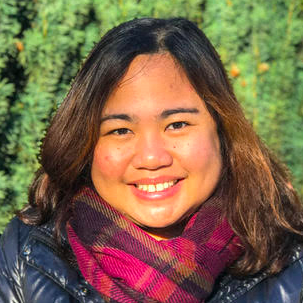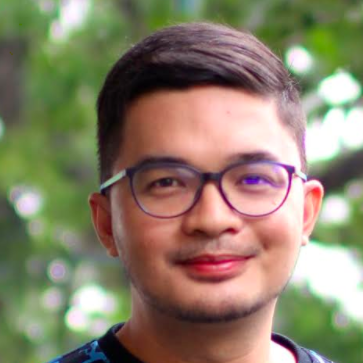
Home after two weeks in the hospital as a COVID-19 patient, Dr Mary Ruby Palma was interviewed by local government health officers about her successful treatment. On top of therapy and medication, she wanted to tell them how she managed her thoughts and feelings throughout the confinement. It was, she believed, crucial to her recovery. But no one asked.
Half of that eventful time in April was spent in one “Room D” at V. Luna General in Quezon City with 3 other women half her age. At 69, Ruby is a published poet and author, a doctor of public administration and a reserve officer of the Philippine Army. She headed the QC Brigade’s civil-military operations under two mayors.
Her roomies were an army nurse, a pediatrician, and a sports journalist. They formed a quick friendship, named the room “Delta Force” and themselves “Delta Force Girls,” and promptly applied themselves to a leave-no-one-behind mission: “To prevail and tell our stories.” (They would all recover.) On Tuesday last week, in “Lusog-Diwa,” a mental health webinar hosted by Brahma Kumaris Philippines, Ruby – first of the 4 to be discharged—told hers.
She was one of two senior-citizen COVID-19 survivors picked as guests for the Zoom series; the other was Corazon Sandico, 89, former merchandising manager of the family-owned Manila COD Department Store, once Cubao’s most famous landmark.
Dorm room, war room
Ruby described Delta Force: “A dorm room, a sorority room, a war room.” They looked out for each other like sisters, she said, and when necessary, like troops on a battlefield with a clear-cut strategy. The younger women paid special attention to her because if she made it, they figured, they simply had to follow suit.
“Accepting that everything else was beyond our control, we agreed to carefully watch our minds,” said Ruby. Meaning, no thoughts of fear or gloom. “When we were not telling stories of encouragement, we were praying individually or busy with our hands. I started writing a journal.” That journal is now “Diary of a Covid+,” just waiting to be published, her sixth book. As much as it details her physical treatment, it also narrates the acute loneliness that nearly defeated her and how she fought it.
Though she never got close to intubation, she crossed the line to depression. “I could not eat or get enough sleep. I missed my family terribly although they were always on the phone. In my PUI (person under investigation) stage, I had a whole room to myself but that brought little comfort. I would wake up at 3 am, sure that I had been forgotten. I made lists, including names of people who should be at Holy Mass following my cremation. I had a week of that. One night I heard a man singing ‘Mandy’ in the next room. It was like being reconnected! I started singing along but he suddenly stopped and I felt disconnected again.”
She had her own TV set, which was enough distraction for a while. But soon she was looking out the big windows more often, admiring a small orchard. “It was like seeing mango and star apple trees for the first time!” Infusions of poetry crept into her journal. “Sadness soon melted into the words.”
At this point, Ruby was declared COVID-positive. Curiously, she is convinced that her healing started here. “I was moved to Room D and by that time I was thinking straight, and there I found very positive company in my new friends. For the first time in days, I felt hopeful.”
Seven days later, on Easter Sunday, she was discharged, COVID-free.
House calls for mom
From the start, eco-fashion advocate Fernandina “Ditta” Sandico, was firm about keeping her mother in the family’s Quezon City home until she was well.
Corazon had herself checked at St. Luke’s QC on April 24 for a chronic throat infection. Back home after a few hours, she announced that she was found with “mild pneumonia.” She also said she had taken a rapid COVID test and that the result was negative. When she didn’t seem to get better after a few days, Ditta called two of her mom’s doctors, who both advised immediate confinement. “Very scared” at this point, Ditta consulted her siblings, but made clear her strong reservations. “For starters, I said, mom could not be left on her own in the hospital at her age.”
Ditta found a physician who had treated several COVID patients and who made house calls! She narrated during the webinar, “I learned he had caught the virus in January, and had medication in stock as well. He took one look at mom and said she was very likely positive. We had mom tested again and the doctor suggested that we immediately give her hydroxychloroquine.”
Ditta and her siblings worried about the drug’s known side effects but saw that they had dwindling options. The day after they agreed to the first dose, the second test result came in. It was positive.
“It was sort of good to know that we were on the right track and possibly one step ahead,” Ditta said. Corazon was put on hydroxycholoquine for 10 days.

But this hectic chapter in their lives had just started. Corazon’s husband, Fernando Hizon Sandico, 94, was not informed of her condition, since he had health issues of his own and was in fact isolated in another room. The signals were not lost on Ditta.
She recounted: “A good full month before the public health emergency was declared in the country, I had embarked on a juicing regimen—vegetables, mostly malunggay, and fruits—and discovered healing teas made from local herbs. With this new development in the household, I went on overdrive and started everyone on the juicing, including my dad who had developed a bad cough. He was on it for 3 days, 3 times a day. His body reacted to the juices with a bout of diarrhea, which alarmed me. But when we stopped, the cough went away! Instead he caught a cold, and I decided not to push it.”
In a confounding twist, the doctor caught the virus again and had to stop his visits. Then the part-time nurse and one of the help came down with fever. Ditta was flustered. “I thought, this is never ending—everyone is crumbling!” Which she also took to mean that she had to stand her ground. “I could not lose the battle. I had to face it or I would simply end up in tears.” She had the whole household of 14 members, including herself, tested. “It was a miracle; we were all negative!”
On May 22, Ditta posted on Facebook three photographs of Corazon taking in the morning sun in the front yard. The caption read: “Hallelujah! The Lord heard her prayers, as well as yours and mine.”
Parallels and intersections
Webinar panelist Rebecca “Becky” Ortega, a meditation teacher for more than 30 years, pointed out cross points in the parallel tales. “Dr Palma and Mrs Sandico were both infected, but one was treated in a hospital and the other recovered at home. Both grappled with loneliness, and both turned to faith. Nurturing relationships pulled both of them out of the darkness. At their most uncertain, they put the welfare of others ahead of theirs.”

Corazon said she had prayed fervently for “another chance” but only because, “as I told God, I had not finished writing my will. If I died at this time, it would be difficult for my children.”
Her mother had always been a patient person but these past two months had further highlighted that quality, Ditta said. “She did not complain about any part of her treatment—not about the medicines or any physical discomfort.” In the FB post, Ditta said that Corazon, who had lost her appetite, was “delighting” in new recipes coming out of the kitchen.
Ruby and Corazon had pluck and the smarts to start with. Ruby recounted, “I have looked death in the eye 3 times—twice my own, but those were nothing compared to the third, when my eldest child died at age 25.” She insisted that this fortitude was boosted by her commitment to the Delta Force Girls’ solemn mission.
“With them around when my family could not be there, I paid deliberate attention at every step to how I was feeling and what thoughts were creating those feelings,” she said. “I excised the negative with my pen and replaced it with their caring.”
As a concept and guideline, “new normal” does not impress Ruby. “Hygiene, discipline, consideration for others—these are not new, especially not for seniors like me.” What do concern her about the imminent future, are “touch-less” relationships and interactions. “That will never be natural for me, and surely for all human beings. We are a touchy-feely species. Every single day I long to embrace my little grandson.”
Becky noted that time and technology had surely helped man devise many other ways to “touch” loved ones. Corazon just might support this viewpoint. She recently got to walk all the way to Fernando’s door. He called out and asked her to come in so they could pray the rosary together. She did not hesitate. Ditta was conflicted about that. “Clearly, my dad missed her very much. But I could not help reminding her to take extra care against any new infection.”
She said her mother had fixed her with such a quizzical stare that she ended up simply giving in. “Oh, well, I thought, praying together has long been their thing, and they look forward to it. In fact, maybe that’s what pulls them through every single time.”
(The Lusog-Diwa webinar series is a community project of “Pause Muna, Peace Muna,” a peace and wellbeing initiative of Brahma Kumaris Philippines.)




